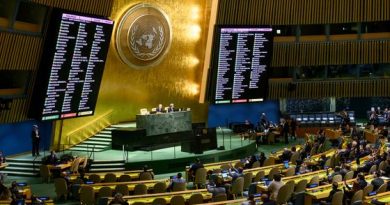Foreign Policy Hosts Event Sharing Risks of Generative AI
Alex Lee
Staff Writer
On November 8, Foreign Policy hosted the first event of a virtual six-part series, titled “Promise Over Peril,” which aims to share the future of generative artificial intelligence (GenAI). Foreign Policy shares that the unprecedented speed of the development of GenAI brings along unknowns that share both opportunities and threats to governments. GenAI has the capability to transform all areas of human life, including healthcare, trade, and military. However, this also means that GenAI has the capacity to be weaponized, and the development of GenAI is exceeding the speed of legislation concerning AI. The lack of policy concerning AI is leaving governments to scramble to create legal frameworks that AI can exist within, as well as creating a gap in government’s ability to combat security risks.
The first guest of the event was Congresswoman Anna Eshoo (D-CA), representing the Silicon Valley region. She believes in the importance of innovation and spoke about AI through this lens. Eshoo spoke about U.S. President Joe Biden’s Oct. 30 executive order on AI, which recognized immigrants, international students, and visa holders and the role they play in the development of AI, according to Forbes. Eshoo believes that Biden’s executive order promotes consumers and equality between the consumer and corporations. She believes that this executive order will jump start the regulation that federal agencies want to implement.
The U.S. Congress is broken, Eshoo shares. Eshoo listed its faults, explaining first that Congress has no fallback for regulation. Congress struggles on many fronts, she shares, yet Eshoo is cautiously optimistic due to its broad interests. Eshoo chairs a bipartisan AI caucus and admits that it is hard to find experts on AI. Additionally, she shares that it is hard for members of Congress to believe that they don’t understand AI, contributing to the lack of legislation surrounding AI and GenAI.
Eshoo advocates that AI needs to not only be in the hands of high-tech companies, but in all sectors. Eshoo is working on legislation that is bipartisan, aiming to combat AI’s negative impacts. AI brings opportunities within legislation and innovation, including the potential to expand biosecurity, as she shared that AI can make bioweapons. Eshoo also expanded on the international context of AI and its innovation and legislation. China has a lead on AI understanding and innovation, but that lead is not significant.
Much of the limited legislation concerning AI focuses on private sector regulation. Eshoo and the event’s other speakers brought forth the point that the AI and GenAI industry need Congress to implement legislation so they can react, innovating within the framework the legislation creates. This is the only way practicality can be ensured.
David Lin is the Senior Director for Future Technology Platforms at the Special Competitive Studies Project. He spent over ten years serving within the U.S. government, focusing on technology policy and China, Foreign Policy shares. Lin explained that world leaders are decently well equipped to handle GenAI, and that Biden’s executive order is a step in the right direction. All of government can benefit from AI, he shares, but we need a balanced regulation policy that limits the threats of AI but allows the innovation to benefit us as well. Lin believes that the U.S. can create new ideas and other applications in the defense sector using the benefits of AI. However, Lin stresses that it is important to use AI in a fair and ethical way economically.
Paul Scheer, the Executive Vice President and Director of Studies at the Center for a New American Security, discussed the Bletchley declaration. The declaration, revealed at the United Kingdom’s safety summit, attempts to address the risks of AI with urgency and prioritizing human rights and the United Nations’ Sustainable Development Goals, The Conversation shares. Ultimately, Scheer believes that the goal of the Bletchley declaration is a move in the right direction, but toothless. Scheer urges governments to provide guidelines for public-private partnerships.



